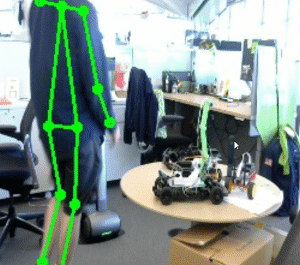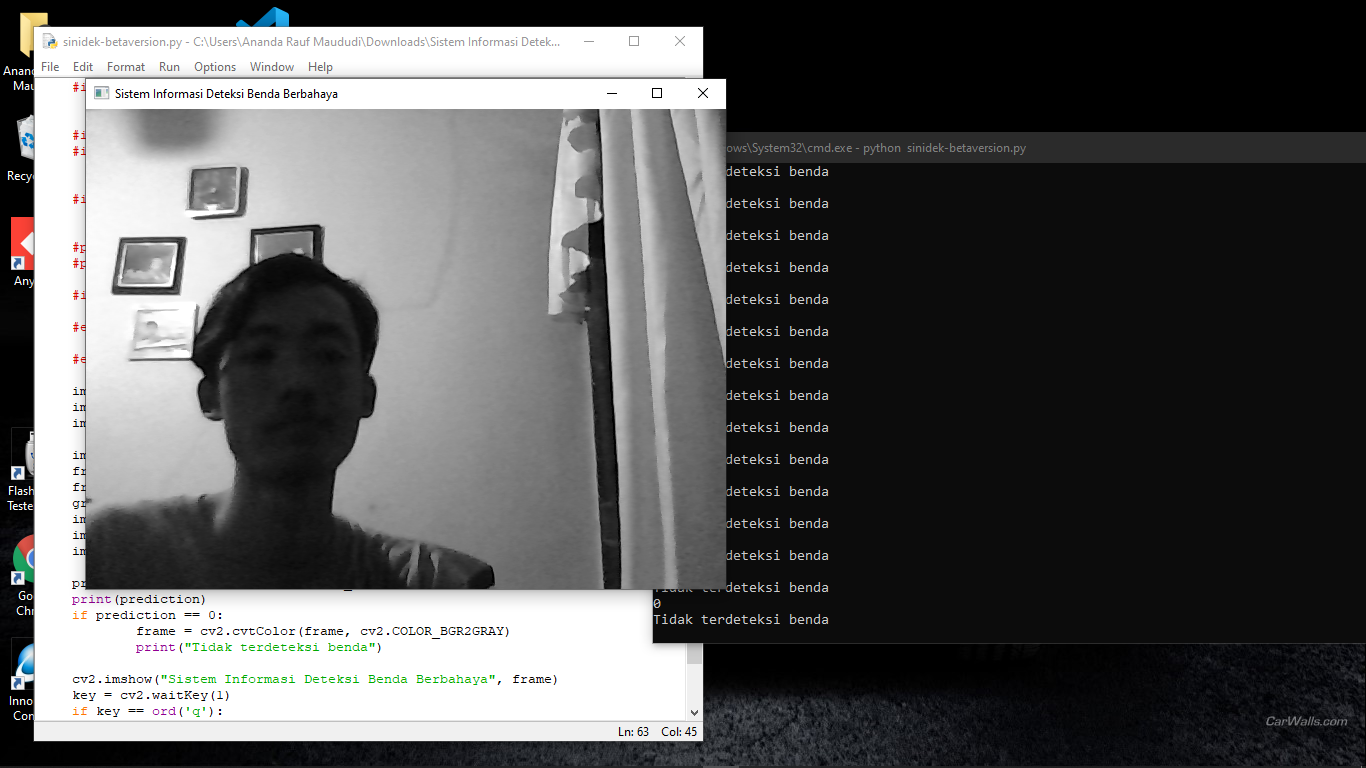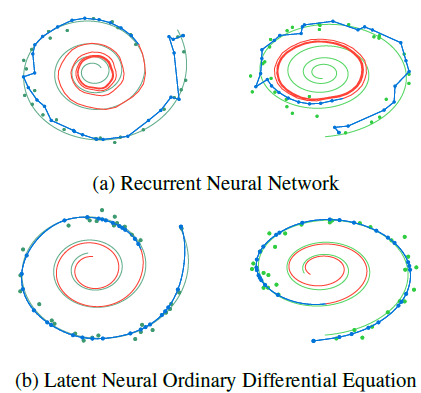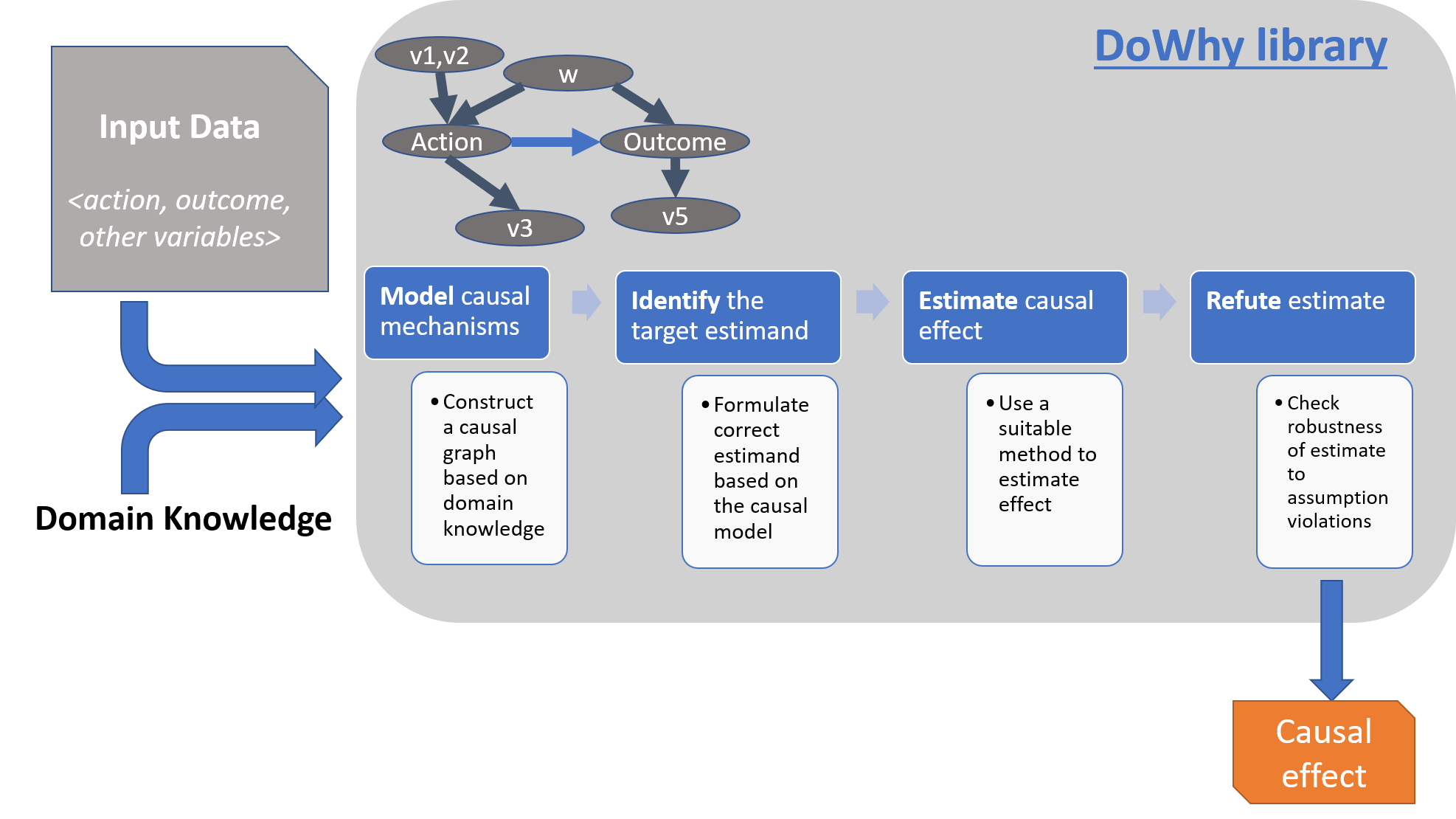1274 Repositories
Python proxy-models Libraries
An open-source Kazakh named entity recognition dataset (KazNERD), annotation guidelines, and baseline NER models.
Kazakh Named Entity Recognition This repository contains an open-source Kazakh named entity recognition dataset (KazNERD), named entity annotation gui
Simple command line tool to train and deploy your machine learning models with AWS SageMaker
metamaker Simple command line tool to train and deploy your machine learning models with AWS SageMaker Features metamaker enables you to: Build a dock
This repository provides an unified frameworks to train and test the state-of-the-art few-shot font generation (FFG) models.
FFG-benchmarks This repository provides an unified frameworks to train and test the state-of-the-art few-shot font generation (FFG) models. What is Fe
This repo contains simple to use, pretrained/training-less models for speaker diarization.
PyDiar This repo contains simple to use, pretrained/training-less models for speaker diarization. Supported Models Binary Key Speaker Modeling Based o
Official code for the paper "Why Do Self-Supervised Models Transfer? Investigating the Impact of Invariance on Downstream Tasks".
Why Do Self-Supervised Models Transfer? Investigating the Impact of Invariance on Downstream Tasks This repository contains the official code for the
Training open neural machine translation models
Train Opus-MT models This package includes scripts for training NMT models using MarianNMT and OPUS data for OPUS-MT. More details are given in the Ma

Real-time pose estimation accelerated with NVIDIA TensorRT
trt_pose Want to detect hand poses? Check out the new trt_pose_hand project for real-time hand pose and gesture recognition! trt_pose is aimed at enab

The lightweight PyTorch wrapper for high-performance AI research. Scale your models, not the boilerplate.
The lightweight PyTorch wrapper for high-performance AI research. Scale your models, not the boilerplate. Website • Key Features • How To Use • Docs •

Haystack is an open source NLP framework that leverages Transformer models.
Haystack is an end-to-end framework that enables you to build powerful and production-ready pipelines for different search use cases. Whether you want

Pytorch and Keras Implementations of Hyperspectral Image Classification -- Traditional to Deep Models: A Survey for Future Prospects.
The repository contains the implementations for Hyperspectral Image Classification -- Traditional to Deep Models: A Survey for Future Prospects. Model
Qlib is an AI-oriented quantitative investment platform
Qlib is an AI-oriented quantitative investment platform, which aims to realize the potential, empower the research, and create the value of AI technologies in quantitative investment.

High performance distributed framework for training deep learning recommendation models based on PyTorch.
PERSIA (Parallel rEcommendation tRaining System with hybrId Acceleration) is developed by AI platform@Kuaishou Technology, collaborating with ETH. It
The FIRST GANs-based omics-to-omics translation framework
OmiTrans Please also have a look at our multi-omics multi-task DL freamwork 👀 : OmiEmbed The FIRST GANs-based omics-to-omics translation framework Xi

Make differentially private training of transformers easy for everyone
private-transformers This codebase facilitates fast experimentation of differentially private training of Hugging Face transformers. What is this? Why

Unofficial implementation of Proxy Anchor Loss for Deep Metric Learning
Proxy Anchor Loss for Deep Metric Learning Unofficial pytorch, tensorflow and mxnet implementations of Proxy Anchor Loss for Deep Metric Learning. Not
Pytorch library for end-to-end transformer models training and serving
Pytorch library for end-to-end transformer models training and serving

A curated list of awesome papers for Semantic Retrieval (TOIS Accepted: Semantic Models for the First-stage Retrieval: A Comprehensive Review).
A curated list of awesome papers for Semantic Retrieval (TOIS Accepted: Semantic Models for the First-stage Retrieval: A Comprehensive Review).

Codes for NeurIPS 2021 paper "Adversarial Neuron Pruning Purifies Backdoored Deep Models"
Adversarial Neuron Pruning Purifies Backdoored Deep Models Code for NeurIPS 2021 "Adversarial Neuron Pruning Purifies Backdoored Deep Models" by Dongx
In the case of your data having only 1 channel while want to use timm models
timm_custom Description In the case of your data having only 1 channel while want to use timm models (with or without pretrained weights), run the fol
A model checker for verifying properties in epistemic models
Epistemic Model Checker This is a model checker for verifying properties in epistemic models. The goal of the model checker is to check for Pluralisti

Si Adek Keras is software VR dangerous object detection.
Si Adek Python Keras Sistem Informasi Deteksi Benda Berbahaya Keras Python. Version 1.0 Developed by Ananda Rauf Maududi. Developed date: 24 November
This repository contains several image-to-image translation models, whcih were tested for RGB to NIR image generation. The models are Pix2Pix, Pix2PixHD, CycleGAN and PointWise.
RGB2NIR_Experimental This repository contains several image-to-image translation models, whcih were tested for RGB to NIR image generation. The models
Code for text augmentation method leveraging large-scale language models
HyperMix Code for our paper GPT3Mix and conducting classification experiments using GPT-3 prompt-based data augmentation. Getting Started Installing P
TensorFlow port of PyTorch Image Models (timm) - image models with pretrained weights.
TensorFlow-Image-Models Introduction Usage Models Profiling License Introduction TensorfFlow-Image-Models (tfimm) is a collection of image models with
Augmenting Physical Models with Deep Networks for Complex Dynamics Forecasting
Official code of APHYNITY Augmenting Physical Models with Deep Networks for Complex Dynamics Forecasting (ICLR 2021, Oral) Yuan Yin*, Vincent Le Guen*
Efficient semidefinite bounds for multi-label discrete graphical models.
Low rank solvers #################################### benchmark/ : folder with the random instances used in the paper. ############################
VGGVox models for Speaker Identification and Verification trained on the VoxCeleb (1 & 2) datasets
VGGVox models for speaker identification and verification This directory contains code to import and evaluate the speaker identification and verificat

Code for DisCo: Remedy Self-supervised Learning on Lightweight Models with Distilled Contrastive Learning
DisCo: Remedy Self-supervised Learning on Lightweight Models with Distilled Contrastive Learning Pytorch Implementation for DisCo: Remedy Self-supervi

Self-Supervised Document-to-Document Similarity Ranking via Contextualized Language Models and Hierarchical Inference
Self-Supervised Document Similarity Ranking (SDR) via Contextualized Language Models and Hierarchical Inference This repo is the implementation for SD
This is a Blender 2.9 script for importing mixamo Models to Godot-3
Mixamo-To-Godot This is a Blender 2.9 script for importing mixamo Models to Godot-3 The script does the following things Imports the mixamo models fro
FasterAI: A library to make smaller and faster models with FastAI.
Fasterai fasterai is a library created to make neural network smaller and faster. It essentially relies on common compression techniques for networks

An easy to use Natural Language Processing library and framework for predicting, training, fine-tuning, and serving up state-of-the-art NLP models.
Welcome to AdaptNLP A high level framework and library for running, training, and deploying state-of-the-art Natural Language Processing (NLP) models
A library that integrates huggingface transformers with the world of fastai, giving fastai devs everything they need to train, evaluate, and deploy transformer specific models.
blurr A library that integrates huggingface transformers with version 2 of the fastai framework Install You can now pip install blurr via pip install

Creating multimodal multitask models
Fusion Brain Challenge The English version of the document can be found here. Обновления 01.11 Мы выкладываем пример данных, аналогичных private test
Towards Improving Embedding Based Models of Social Network Alignment via Pseudo Anchors
PSML paper: Towards Improving Embedding Based Models of Social Network Alignment via Pseudo Anchors PSML_IONE,PSML_ABNE,PSML_DEEPLINK,PSML_SNNA: numpy
Finetune SSL models for MOS prediction
Finetune SSL models for MOS prediction This is code for our paper under review for ICASSP 2022: "Generalization Ability of MOS Prediction Networks" Er
Feature-engine is a Python library with multiple transformers to engineer and select features for use in machine learning models.
Feature-engine is a Python library with multiple transformers to engineer and select features for use in machine learning models. Feature-engine's transformers follow scikit-learn's functionality with fit() and transform() methods to first learn the transforming parameters from data and then transform the data.

apricot implements submodular optimization for the purpose of selecting subsets of massive data sets to train machine learning models quickly.
Please consider citing the manuscript if you use apricot in your academic work! You can find more thorough documentation here. apricot implements subm

Deep and online learning with spiking neural networks in Python
Introduction The brain is the perfect place to look for inspiration to develop more efficient neural networks. One of the main differences with modern

An optimization and data collection toolbox for convenient and fast prototyping of computationally expensive models.
An optimization and data collection toolbox for convenient and fast prototyping of computationally expensive models. Hyperactive: is very easy to lear

The purpose of this project is to share knowledge on how awesome Streamlit is and can be
Awesome Streamlit The fastest way to build Awesome Tools and Apps! Powered by Python! The purpose of this project is to share knowledge on how Awesome
Code to compute permutation and drop-column importances in Python scikit-learn models
Feature importances for scikit-learn machine learning models By Terence Parr and Kerem Turgutlu. See Explained.ai for more stuff. The scikit-learn Ran
A method that utilized Generative Adversarial Network (GAN) to interpret the black-box deep image classifier models by PyTorch.
A method that utilized Generative Adversarial Network (GAN) to interpret the black-box deep image classifier models by PyTorch.

Backprop makes it simple to use, finetune, and deploy state-of-the-art ML models.
Backprop makes it simple to use, finetune, and deploy state-of-the-art ML models. Solve a variety of tasks with pre-trained models or finetune them in
Resilience from Diversity: Population-based approach to harden models against adversarial attacks
Resilience from Diversity: Population-based approach to harden models against adversarial attacks Requirements To install requirements: pip install -r
This toolkit provides codes to download and pre-process the SLUE datasets, train the baseline models, and evaluate SLUE tasks.
slue-toolkit We introduce Spoken Language Understanding Evaluation (SLUE) benchmark. This toolkit provides codes to download and pre-process the SLUE

Code accompanying the paper "ProxyFL: Decentralized Federated Learning through Proxy Model Sharing"
ProxyFL Code accompanying the paper "ProxyFL: Decentralized Federated Learning through Proxy Model Sharing" Authors: Shivam Kalra*, Junfeng Wen*, Jess

PyTorch implementation for Score-Based Generative Modeling through Stochastic Differential Equations (ICLR 2021, Oral)
Score-Based Generative Modeling through Stochastic Differential Equations This repo contains a PyTorch implementation for the paper Score-Based Genera

Multiple types of NN model optimization environments. It is possible to directly access the host PC GUI and the camera to verify the operation. Intel iHD GPU (iGPU) support. NVIDIA GPU (dGPU) support.
mtomo Multiple types of NN model optimization environments. It is possible to directly access the host PC GUI and the camera to verify the operation.

This repo contains implementation of different architectures for emotion recognition in conversations.
Emotion Recognition in Conversations Updates 🔥 🔥 🔥 Date Announcements 03/08/2021 🎆 🎆 We have released a new dataset M2H2: A Multimodal Multiparty

MICOM is a Python package for metabolic modeling of microbial communities
Welcome MICOM is a Python package for metabolic modeling of microbial communities currently developed in the Gibbons Lab at the Institute for Systems
A python package to manage the stored receiver-side Strain Green's Tensor (SGT) database of 3D background models and able to generate Green's function and synthetic waveform
A python package to manage the stored receiver-side Strain Green's Tensor (SGT) database of 3D background models and able to generate Green's function and synthetic waveform

A python module to create random networks using network models
networkgen A python module to create random networks using network models Usage $
This is Pygrr PolyArt, a program used for drawing custom Polygon models for your Pygrr project!
This is Pygrr PolyArt, a program used for drawing custom Polygon models for your Pygrr project!

A single model for shaping, creating, accessing, storing data within a Database
'db' within pydantic - A single model for shaping, creating, accessing, storing data within a Database Key Features Integrated Redis Caching Support A
How to use TensorLayer
How to use TensorLayer While research in Deep Learning continues to improve the world, we use a bunch of tricks to implement algorithms with TensorLay

The lightweight PyTorch wrapper for high-performance AI research. Scale your models, not the boilerplate.
The lightweight PyTorch wrapper for high-performance AI research. Scale your models, not the boilerplate. Website • Key Features • How To Use • Docs •
SageMaker Python SDK is an open source library for training and deploying machine learning models on Amazon SageMaker.
SageMaker Python SDK SageMaker Python SDK is an open source library for training and deploying machine learning models on Amazon SageMaker. With the S
TensorFlow code and pre-trained models for BERT
BERT ***** New March 11th, 2020: Smaller BERT Models ***** This is a release of 24 smaller BERT models (English only, uncased, trained with WordPiece
Topic Inference with Zeroshot models
zeroshot_topics Table of Contents Installation Usage License Installation zeroshot_topics is distributed on PyPI as a universal wheel and is available
Discord webhook spammer with proxy support and proxy scraper
Discord webhook spammer with proxy support and proxy scraper

Biterm Topic Model (BTM): modeling topics in short texts
Biterm Topic Model Bitermplus implements Biterm topic model for short texts introduced by Xiaohui Yan, Jiafeng Guo, Yanyan Lan, and Xueqi Cheng. Actua
Introducing neural networks to predict stock prices
IntroNeuralNetworks in Python: A Template Project IntroNeuralNetworks is a project that introduces neural networks and illustrates an example of how o
Deploy optimized transformer based models on Nvidia Triton server
🤗 Hugging Face Transformer submillisecond inference 🤯 and deployment on Nvidia Triton server Yes, you can perfom inference with transformer based mo
Troposphere and shellscript based AWS infrastructure automation creates an awsapigateway lambda with a go backend
Automated-cloudformation-infra Troposphere and shellscript based AWS infrastructure automation. Feel free to clone and edit for personal usage. The en

This project uses unsupervised machine learning to identify correlations between daily inoculation rates in the USA and twitter sentiment in regards to COVID-19.
Twitter COVID-19 Sentiment Analysis Members: Christopher Bach | Khalid Hamid Fallous | Jay Hirpara | Jing Tang | Graham Thomas | David Wetherhold Pro

Codes for Causal Semantic Generative model (CSG), the model proposed in "Learning Causal Semantic Representation for Out-of-Distribution Prediction" (NeurIPS-21)
Learning Causal Semantic Representation for Out-of-Distribution Prediction This repository is the official implementation of "Learning Causal Semantic
go-cqhttp API typing annoations, return data models and utils for nonebot
go-cqhttp API typing annoations, return data models and utils for nonebot
A Burp Suite extension made to automate the process of finding reverse proxy path based SSRF.
TProxer A Burp Suite extension made to automate the process of finding reverse proxy path based SSRF. How • Install • Todo • Join Discord How it works
Hyperlinks for pydantic models
Hyperlinks for pydantic models In a typical web application relationships between resources are modeled by primary and foreign keys in a database (int

Machine Learning Privacy Meter: A tool to quantify the privacy risks of machine learning models with respect to inference attacks, notably membership inference attacks
ML Privacy Meter Machine learning is playing a central role in automated decision making in a wide range of organization and service providers. The da
This repository contains the code for TACL2021 paper: SummaC: Re-Visiting NLI-based Models for Inconsistency Detection in Summarization
SummaC: Summary Consistency Detection This repository contains the code for TACL2021 paper: SummaC: Re-Visiting NLI-based Models for Inconsistency Det
Official source for spanish Language Models and resources made @ BSC-TEMU within the "Plan de las Tecnologías del Lenguaje" (Plan-TL).
Spanish Language Models 💃🏻 A repository part of the MarIA project. Corpora 📃 Corpora Number of documents Number of tokens Size (GB) BNE 201,080,084
Code for text augmentation method leveraging large-scale language models
HyperMix Code for our paper GPT3Mix and conducting classification experiments using GPT-3 prompt-based data augmentation. Getting Started Installing P
InvTorch: memory-efficient models with invertible functions
InvTorch: Memory-Efficient Invertible Functions This module extends the functionality of torch.utils.checkpoint.checkpoint to work with invertible fun
Experimental code for paper: Generative Adversarial Networks as Variational Training of Energy Based Models
Experimental code for paper: Generative Adversarial Networks as Variational Training of Energy Based Models, under review at ICLR 2017 requirements: T

Defense-GAN: Protecting Classifiers Against Adversarial Attacks Using Generative Models (published in ICLR2018)
Defense-GAN: Protecting Classifiers Against Adversarial Attacks Using Generative Models Pouya Samangouei*, Maya Kabkab*, Rama Chellappa [*: authors co

Code to reproduce results from the paper "AmbientGAN: Generative models from lossy measurements"
AmbientGAN: Generative models from lossy measurements This repository provides code to reproduce results from the paper AmbientGAN: Generative models

A TensorFlow Implementation of "Deep Multi-Scale Video Prediction Beyond Mean Square Error" by Mathieu, Couprie & LeCun.
Adversarial Video Generation This project implements a generative adversarial network to predict future frames of video, as detailed in "Deep Multi-Sc
A Tensorflow implementation of the Text Conditioned Auxiliary Classifier Generative Adversarial Network for Generating Images from text descriptions
A Tensorflow implementation of the Text Conditioned Auxiliary Classifier Generative Adversarial Network for Generating Images from text descriptions
MiTM proxy server for Darza's Dominion
Midnight A MiTM proxy server for Darza's Dominion, PC version. See this video for a demonstration of godmode: https://youtu.be/uoqvSxmnCJk How to use
Some tentative models that incorporate label propagation to graph neural networks for graph representation learning in nodes, links or graphs.
Some tentative models that incorporate label propagation to graph neural networks for graph representation learning in nodes, links or graphs.

Ladder Variational Autoencoders (LVAE) in PyTorch
Ladder Variational Autoencoders (LVAE) PyTorch implementation of Ladder Variational Autoencoders (LVAE) [1]: where the variational distributions q at

Collection of generative models in Tensorflow
tensorflow-generative-model-collections Tensorflow implementation of various GANs and VAEs. Related Repositories Pytorch version Pytorch version of th

Hummingbird compiles trained ML models into tensor computation for faster inference.
Hummingbird Introduction Hummingbird is a library for compiling trained traditional ML models into tensor computations. Hummingbird allows users to se
LowRankModels.jl is a julia package for modeling and fitting generalized low rank models.
LowRankModels.jl LowRankModels.jl is a Julia package for modeling and fitting generalized low rank models (GLRMs). GLRMs model a data array by a low r
A statistical library designed to fill the void in Python's time series analysis capabilities, including the equivalent of R's auto.arima function.
pmdarima Pmdarima (originally pyramid-arima, for the anagram of 'py' + 'arima') is a statistical library designed to fill the void in Python's time se
A statistical library designed to fill the void in Python's time series analysis capabilities, including the equivalent of R's auto.arima function.
pmdarima Pmdarima (originally pyramid-arima, for the anagram of 'py' + 'arima') is a statistical library designed to fill the void in Python's time se
healthy and lesion models for learning based on the joint estimation of stochasticity and volatility
health-lesion-stovol healthy and lesion models for learning based on the joint estimation of stochasticity and volatility Reference please cite this p

High performance distributed framework for training deep learning recommendation models based on PyTorch.
High performance distributed framework for training deep learning recommendation models based on PyTorch.
vartests is a Python library to perform some statistic tests to evaluate Value at Risk (VaR) Models
vartests is a Python library to perform some statistic tests to evaluate Value at Risk (VaR) Models, such as: T-test: verify if mean of distribution i
Implementation of the paper Scalable Intervention Target Estimation in Linear Models (NeurIPS 2021), and the code to generate simulation results.
Scalable Intervention Target Estimation in Linear Models Implementation of the paper Scalable Intervention Target Estimation in Linear Models (NeurIPS
Improving the robustness and performance of biomedical NLP models through adversarial training
RobustBioNLP Improving the robustness and performance of biomedical NLP models through adversarial training In this repository you can find suppliment
Source code for paper "Deep Diffusion Models for Robust Channel Estimation", TBA.
diffusion-channels Source code for paper "Deep Diffusion Models for Robust Channel Estimation". Generic flow: Use 'matlab/main.mat' to generate traini
Extracting knowledge graphs from language models as a diagnostic benchmark of model performance.
Interpreting Language Models Through Knowledge Graph Extraction Idea: How do we interpret what a language model learns at various stages of training?
AfriBERTa: Exploring the Viability of Pretrained Multilingual Language Models for Low-resourced Languages
AfriBERTa: Exploring the Viability of Pretrained Multilingual Language Models for Low-resourced Languages This repository contains the code for the pa

Scikit learn library models to account for data and concept drift.
liquid_scikit_learn Scikit learn library models to account for data and concept drift. This python library focuses on solving data drift and concept d
Library of Stan Models for Survival Analysis
survivalstan: Survival Models in Stan author: Jacki Novik Overview Library of Stan Models for Survival Analysis Features: Variety of standard survival

Python package for causal inference using Bayesian structural time-series models.
Python Causal Impact Causal inference using Bayesian structural time-series models. This package aims at defining a python equivalent of the R CausalI

DoWhy is a Python library for causal inference that supports explicit modeling and testing of causal assumptions. DoWhy is based on a unified language for causal inference, combining causal graphical models and potential outcomes frameworks.
DoWhy | An end-to-end library for causal inference Amit Sharma, Emre Kiciman Introducing DoWhy and the 4 steps of causal inference | Microsoft Researc